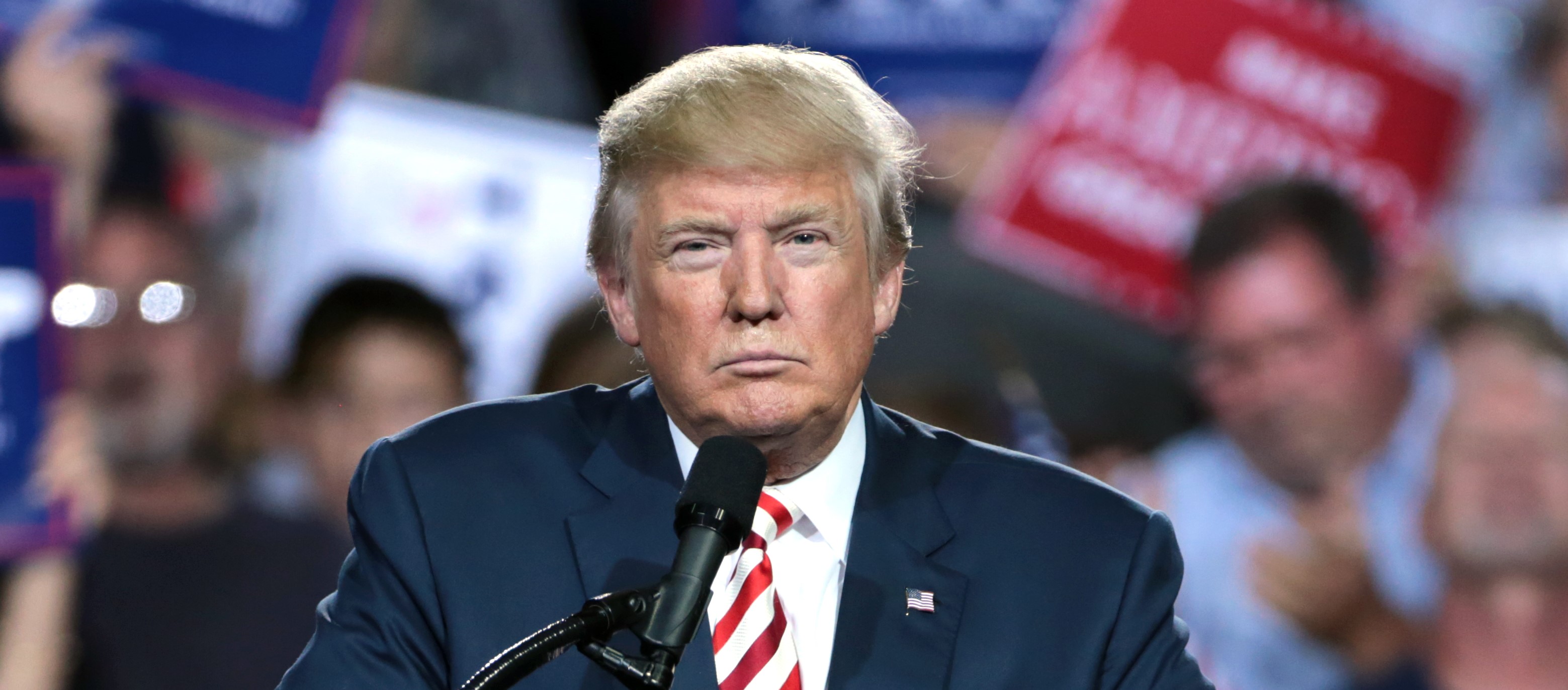
Comment Writer Andrew Bailey discusses Trump’s Impeachment Enquiry and its potential to impact the US Election in 2020
On the 25th July 2019, President Trump phoned Volodymyr Zelensky, his Ukrainian counterpart, congratulating him on his recent election success. A relatively routine phone call, it was not until later that the controversy started to emerge. An anonymous whistleblower reported their concern with the phone call to the CIA, with a formal complaint being submitted on the 12th August. Following this, the House of Representatives launched an impeachment inquiry into the President, which is still ongoing. The basis for this is that Democrats and those arguing for impeachment believe Trump has abused the power of his office by asking Ukraine to investigate Joe Biden and his son Hunter, while also withholding foreign aid to Ukraine, which now seems to be a bargaining tool. However, this isn’t the first big scandal that President Trump has faced during his presidency – other examples include the allegations against Trump of paying Stormy Daniels ‘hush money’ after an affair and the Mueller Report into Russian interference in the 2016 election. However, the Democrats think this time is different. There seems to be evidence out there that Trump did ask the Ukrainian president to investigate the Biden family – the transcript outlining him asking the Ukrainian president to do it is pretty clear. However, to answer the question of whether Trump will actually be impeached, it is unlikely that he will be at this time, you first need to look at how partisan American politics has become. Partisanship is the idea that people will strongly support their parties’ policies and are unlikely to compromise, no matter whether or not it is detrimental to their country.
There seems to be clear evidence out there that Trump did ask the Ukrainian president to investigate the Biden family
Democrats and Republicans have never been more divided, and according to Politico, 227 out of the 235 House Democrats support impeachment whilst zero House Republicans support impeachment. While the Democrats have the numbers in the House to pass any impeachment, the Senate are then required to hold a formal trial, a Senate where the Republicans control the majority of the seats. Senate majority leader Mitch McConnell said to Politico that ‘if this is the ‘launching point’ for House Democrats’ impeachment process, they’ve already overplayed their hand. It’s clear there is no quid pro quo that the Democrats were desperately praying for.’ The stark difference between how Democrats and Republicans view this situation is testament to how partisan America has become, which is bad for the country and politics. A partisan America means division in their domestic politics, with laws needing to be passed in both the Senate and House. It leads to an extremely unproductive Congress, and the President resulting in executive orders, which currently have no check on how powerful they are. This has led to Trump effectively pursuing his own agenda abroad, especially with China. The fact that Congress isn’t able to check the power of Trump’s executive orders on pursuing tariffs, which are detrimental to not just China and America but the rest of the world, is a serious problem, with roots at how partisan America has become.
The stark difference between how Democrats and Republicans view this situation is testament to how partisan America has become
With the Democrat and also Republican primaries fast approaching to select their candidates for the 2020 presidential race, the impeachment inquiry into Trump could have implications for the outcome of the presidential race. Joe Biden has already been overtaken as the front runner for the Democrat nomination, with Elizabeth Warren now 0.2% ahead of Biden in the polls, and this can’t have been helped by what’s going on with Trump trying to have him investigated. However, the Democrats’ problem of who to choose as their nominee isn’t their only problem. As voters are equally as partisan as the politicians, the key battleground states could already be decided. Many Republican voters do not support impeachment; 75% of Republican voters in Ohio oppose impeachment according to a poll held by Emerson polling. This issue could help decide which way some voters vote and even which way some swing states go, red or blue. With Ohio, Indiana, Michigan and Wisconsin all voting Republican in the 2016 election, these four swing states are likely to hold more voters that oppose impeaching the President, and this may affect how they vote. This may also change Trump’s narrative when campaigning in these states, allowing him to go back to his narrative of supposedly ‘draining the swamp.’ Democrats need to be careful that they don’t alienate swing voters who voted Republican last time or the centre ground of US politics, as that is the key to them beating Trump in 2020, and at the moment, they are doing more to divide than to unite.
Comments